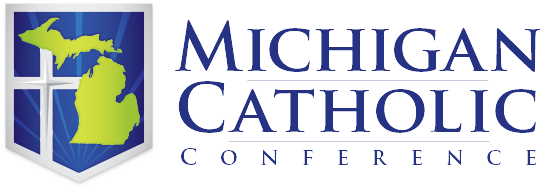The Synod on Synodality
“Synodality” describes the participation of the whole People of God in the life of the Church. In the upcoming Synod, this participation will be exercised in three stages. First, the bishops will consult the People of God about a particular question. Second, the bishops will hear the response of the faithful and discern how the Holy Spirit is speaking in it. Finally, the bishops will implement the directives of Pope Francis once he has considered the bishops’ discernment.
The question the People of God are being asked has been phrased in different ways:
-
“What is the Holy Spirit saying to our Church today?”
-
“What should we do to improve our parish?”
-
“A synodal Church, in announcing the Gospel, ‘journeys together.’ How is this ‘journeying together’ happening today in your local Church? What steps does the Spirit invite us to take in order to grow in our ‘journeying together’?”
The answers given in consultation will be submitted to regional bishops’ conferences, who will synthesize reports and submit their findings to continental bishops’ conferences. These continental gatherings will then submit reports to the General Synod of Bishops in Rome, where the final discernment process will take place and recommendations will be made to Pope Francis.
What is the aim of this Synod?
Parishes and clusters participate through “synodal consultations”: prayerful gatherings of the People of God to discuss the main questions posed by the Synod of Bishops. Synodal teams in each parish or cluster will summarize synodal feedback and submit it to the Diocese of Gaylord.
The objective of the current Synod is to listen, as the entire People of God, to what the Holy Spirit is saying to the Church. We do so by listening together to the Word of God in scripture and the living Tradition of the Church, and then by listening to one another. In fact, the whole Synodal Process aims at fostering a lived experience of discernment, participation, and co-responsibility, where a diversity of gifts is brought together for the Church’s mission in the world. In this sense, it is clear that the purpose of this synod is not to produce more documents. Rather, it is intended to inspire people to dream about the church we are called to be, to make people’s hopes flourish, to stimulate trust, to bind up wounds, to weave new and deeper relationships, to learn from one another, to build bridges, to enlighten minds, warm hearts, and restore strength to our hands for our common mission. The objective is a journey of growing authentically towards the communion and mission that God calls the church to live out in the third millennium. Listening to the entire People of God will help the church to make pastoral decisions that correspond as closely as possible to the will of God. In the end, this synodal process seeks to move towards a church that is more fruitfully at the service of the coming of the kingdom of heaven.
All parishes should participate in the synodal process as they are able. Fruitful participation in the synodal process utilizes existing parish structures, such as the Pastoral Council, to enlist the gifts and talents of many and lighten the load for all. The Diocesan Synodal Team is available to assist those coordinating efforts in each parish or cluster.






